Learning to Read: Word Attack Strategies Beyond Sound It Out
This post may contain affiliate links.
Learning to read individual words is a tricky business.
Reading words require kids to decode, or figure out, the word. They should NOT GUESS. Read more about how to stop word guessing here.
–> APPS for decoding words
Sight words are words children need to know without decoding, just by a glance. Those must be practiced and memorized.
–> GAMES for learning sight words.
–> APPS for sight words.
When your child comes to a non-sight word, a word he doesn’t know, he needs strategies to decode that word. Most of us parents automatically say, “Sound it out.” But is that the best strategy for figuring out a word? No, it isn’t.
Ready for some better word attack strategies?
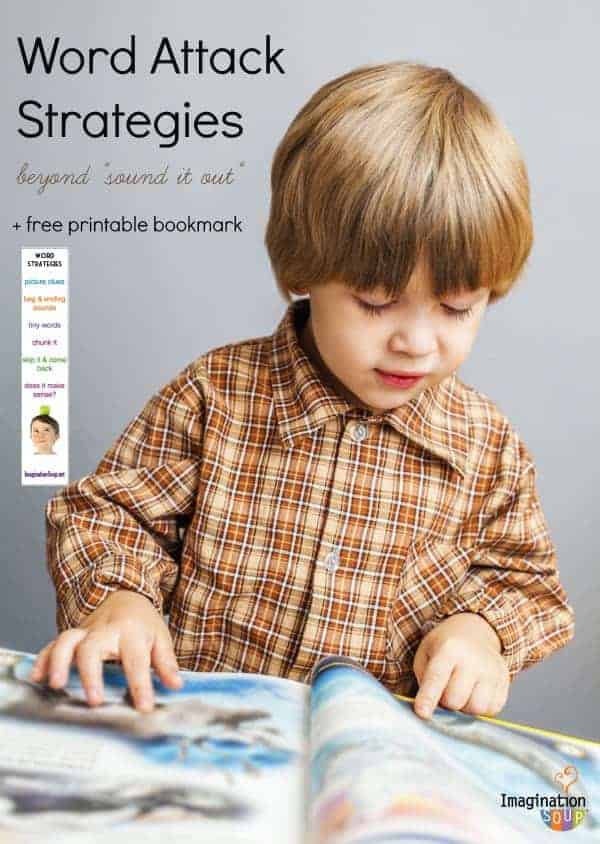
Decoding Strategies (Beyond “Sound It Out”)
Beginning Sound
“Look at the first letter. Do you know a word that starts with that letter? What is that letter’s sound?”
Ending Sound
“Be sure the ending looks and sounds right.”
Chunk It
“Cover the last part of the word with your finger and say the first part first. Now cover that part and say the last part. Can you put the two part together?”
Find a Small Word
“Can you find a word you know in that word?”
Stretch It Out
“Read with your finger and say it slowly.”
Skip It, Go Back
“Why don’t you keep reading until the end of the sentence, the period, and then go back to the word and try again.”
Ask for Help
“Do you need help? Have you tried all your strategies?” *It’s fine to tell kids words – don’t make the suffering go on and on and on! Just remember to keep a balance of both helping and having the child figure it out.
Does It Make Sense?
“Hmm, that word you read doesn’t really make sense to me – does it to you?”
1 Strategy at a Time
Work on one strategy at a time.
Use a sticky note with the strategy with the strategy starred to remind you and your child of the strategy.
What if a child makes a mistake?
Sometimes kids aren’t paying attention to if the words they read make sense — have meaning. (Okay, a lot of times.) Gently remind your child that what she read needs also to make sense.
“Does it make sense?”
“Try that part again.”
“Think about the story.”
“Go slowly.”
“Does that look right?”
“Read that again and check to see if it looks right.”
“Are you making it up or really looking?”
“You got the first part right, now check the ending.”
3 Positives, 1 Correction
Try not to over-correct your child. Work on one thing and LET THE REST GO. I’m serious. One correction and three positives. Or more than three. 🙂
One more reminder: Make the positive comments meaningful. So “good job” is not very meaningful because it’s too vague but “I loved how you made your voice sound like the character” is meaningful and specific.
“Wow! You made sure that ending was just right.”
“You found that tricky part on your own and fixed it.”
“I like how you used a chunking strategy to read that word.”
Games for Kids:
Letter magnets – play with the letters to make words
Sticky notes – label things around your house with their words and write simple notes to your child using short words they can read.
POP Sight Word game
Zingo
Chunks, the Incredible Word Building Game

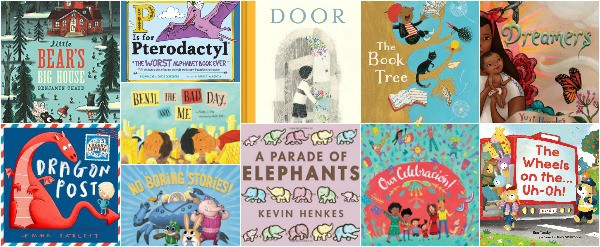
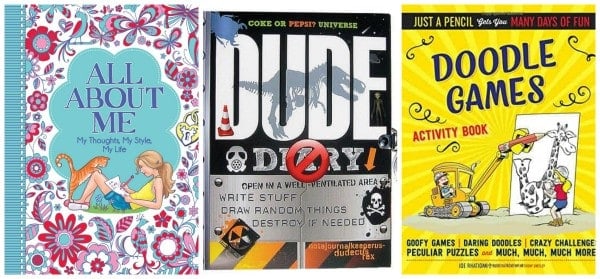


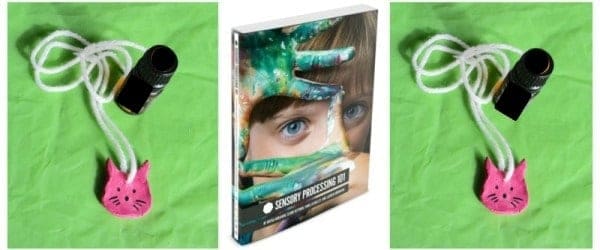
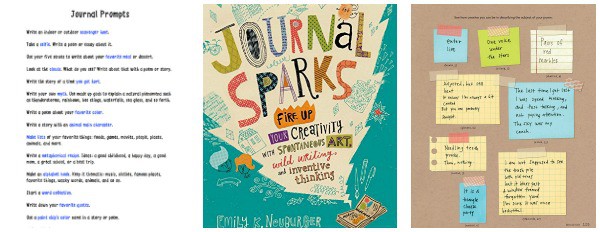
It’s great to have so many strategies to use. It’s sort of like arming children with a pile of different tools in their tool box so they can use them at different times when they need a new approach. Thanks for sharing.
we all need a toolbox, especially kids learning to read. Thanks for the comment, Susan.
I love your strategies. Thank you so much. My daughter is just beginning to read pretty fluently and has been reading books like According to Humphrey. We read Emmy and the Incredible Shrinking Rat but I read it to her at night about a year ago. She’s almost nine now and I was wondering if you know of books like Emmy that she might be ready to read on her own? I feel like the stories she’s choosing at her school library aren’t quite compelling enough and so she’s just reading the minimum time required by the teacher (I question these methods but for the most part it’s a wonderfully progressive program and she loves it). Hard to know if she would be reading more if it weren’t for the minimum required reading. Do you have book suggestions for her age that are about at the level of According to Humphrey? Thanks so much!
Heather, I apologize — I’m not sure when you left this comment or if you still need suggestions. I am just now seeing it.
Try Mercy Watson, Ivy and Bean, A to Z Mysteries, and The Chicken Squad.